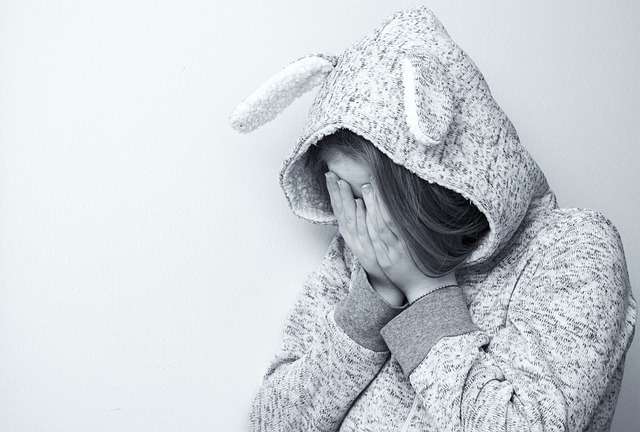
When I was only forty and on vacation in Spain with my husband and young daughter, I received a telegram from my brother. Upon calling him, I learned that our mother had died very suddenly that morning. I was devastated and completely heartbroken.
I had lost my father fourteen years ago, and I was certainly not ready to lose my mother too.
We immediately flew to Ohio and arranged the funeral. It was all a blur. My mother’s best friend helped with the arrangements. I do not know what we would have done without her. For the first time in my life, I was the first in the receiving line after the funeral. I was not sure how I could handle it, but then I thought about my mother. Even after the loss of her beloved husband, Mom remained calm and centered. I knew I had to do the same. It was not easy.
As I look back at that time, I realize that I had no idea how to grieve.
As is true for many families in our country, my family did not grieve. Death was part of life. We simply had to accept that, look for any possible blessings (the one who passed did not suffer, etc), and return to our usual lives. That is precisely what I did, because I did not know what else to do. I forced a smile because the voice in my head told me, “If you start crying, you will never stop.” I could not risk that.
I focused on the blessing that my mother died quickly, that she was ready. However, I was not ready at all. I was only forty and still needed her. In many ways, I still need her today.
Does a daughter ever not need her mother?
After five years of ignoring the emotional pain and pushing myself forward, I ended up in the hospital for an extended stay. I was forced to stop.
That is when my life began to change. I found compassionate counselors. I turned to nature and my love for photography. I went down to a nearby lake early in the morning to watch the sun rise. I began to meditate and pray fervently.
Despite all of that, I deeply missed my mother. There was a profound void within, and I did not know how to fill it.
Then I began writing letters to my mother.
The idea came to me one day, so I grabbed a notebook and started writing. I had no idea what I would say. The minute I wrote Dear Mom, the words tumbled out from my heart. It was as if she were sitting next to me. My heart broke open and I began to sob. However, when I finished the letter with Love, Helen, much to my surprise, I stopped crying. I felt a sense of relief, a liberation from that inner pain.
Any time I wanted to connect with my mother, I would sit down and write. I never shared the letters with anyone. They were too personal. I come from a family where we did not share our feelings, so I felt traitorous expressing my deepest thoughts. But I could feel that it was the right thing for me to do, so I kept writing. I finished one notebook and started another. The words kept flowing. I soon realized that all the letters ended the same way. “Mom, I still need you. Please do not leave my side.”
I wrote for eight years. Sometimes I would wake up in the middle of the night, come downstairs, grab my notebook, and write. Sometimes I would be out walking and had to come home to write. Other times, I might be in the shower.
I never planned. Whenever I had the urge, I sat down.
A friend invited me to join her writers’ group. I accepted and found the courage to begin to share. During each session, the women would share a piece of writing, and we would all offer our comments. However, every time I read a letter, all the women started talking about their own mothers. It was as if my letters opened a door in their own hearts to discuss their own experiences.
What is the greatest lesson I have learned from all of those letters? That even when we feel heartbroken and abandoned, we are never really alone. My dreams, visions, mystical experiences, and the 2 letters that I received from my mother during those years were proof to me that we remain connected, no matter how we may feel.
I realized that the mother-daughter relationship is the most complex, because we come from a mother (whom we may or may never know).
Each relationship is unique and has its own ups and downs. There is no perfection in that relationship. There may be things that remain unsaid or unfelt. There may be anger, unexpressed. Grief holds all human feelings, but in our culture, we often feel unsafe expressing those that are judged as “not positive”.
Rather than stuffing our feelings deep inside and allowing them to fester, we must befriend our grief. What does that mean? When my closest friend’s husband died, I invited her for tea. I held her hand and asked her to talk about whatever she wished. That is how we befriend our own grief. We must be quiet, ask, and then listen. At first, we may hear nothing, but if we are patient, our grief will begin to feel safe enough to emerge. That is a blessing.
Grief is universal. There are no adults in this world who will not, at some time, lose someone or something that they love.
When we lose someone or something we love, it probably means that the person loved us, or that thing brought us joy (whether it be a job, our health, a pet, etc). We are programmed to love, but underneath that, we must feel safe. Loss means a lack of safety.
When we understand the universality of grief, we begin to feel compassion—toward ourselves and the ones we have lost. That compassion then spills out into the world to create a kinder world.
Science has proven that writing by hand allows the energies stored in our hearts to be released.
That is why letter writing is therapeutic. The gift of letter writing after loss is that we finally have an opportunity to explore and express our deepest feelings. NO ONE ever needs to read those letters. We are, in essence, writing them to heal our hearts and relationships. Because of this privacy, we are free to write whatever we want. We are free to be fully authentic. This, in turn, allows us to release all the pent-up feelings and be able to truly find a sense of hope and joy, and even a loving connection after loss.
This is what I learned from my journey, even though I did not even start writing letters until 16 years after the death of my mother. My mother was a good, loving mother, but she worked and took care of a lot of people, so she was very busy. I used to resent that. Then I wrote to her and understood her life from an adult viewpoint. I feel deep compassion toward both my mother and me now, but also to others, because everyone will struggle with similar issues at some point in their lives.
I hope this has been helpful to you, dear reader, and that you may find the time and courage to befriend your own grief. May you find peace, comfort, and reconnection in the process.


















